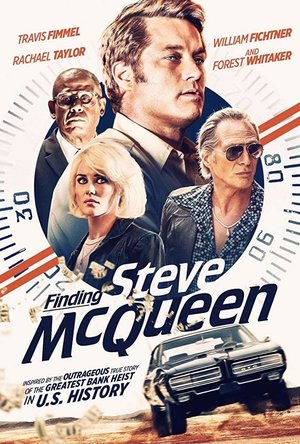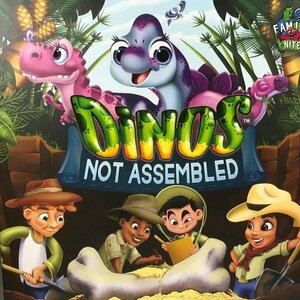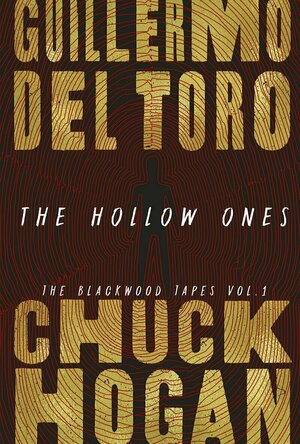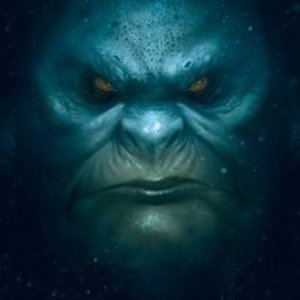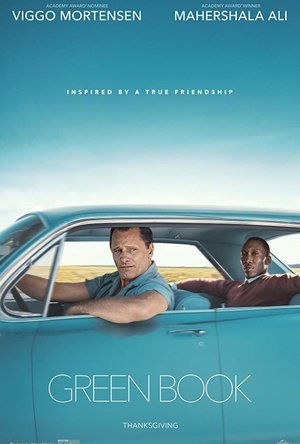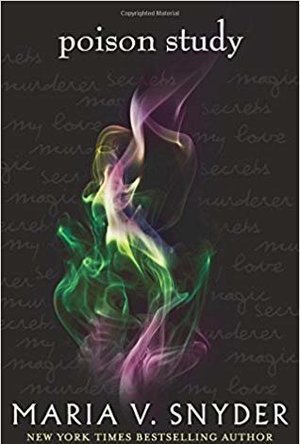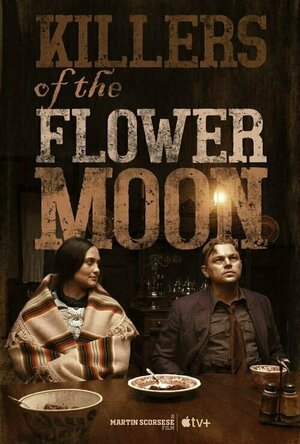Emma @ The Movies (1786 KP) rated Finding Steve McQueen (2019) in Movies
Nov 9, 2020
I had a big issue almost straight off the bat... "In 1972"... that's how the synopsis starts. I had reread it just before starting the film and as it begins it actually flashes up "1980", very quickly it's explained (and it makes sense) but I didn't enjoy starting the film with that confusion. Now, if I was seeing this in the cinema it wouldn't have been an issue because you don't tend to sit there in the trailers reading the synopsis before it starts, but with it hitting digital you will be instantly seeing it before you press play... I know it's a really minor thing to be bugged by... but it did bug me.
The reason for the jump in years is that we're seeing Harry Barber telling his girlfriend, Molly, the story of his past and the heist. Flashbacks are a time-honoured tradition in films, but they're difficult to get right. The story jumps several times, but there's very little differentiation between time unless the diner is involved on one side of the jump. At one point it jumps because he talks at the camera and we hop back to Molly talking, it stuck out... it either never happened again or it blended in so well that I didn't notice it. It wouldn't be the first film to add something random like that and abandon the style choice. Some else will have to let me know if it happened more than I think it did.
These two things, combined with some free moving camerawork (that you know I hate) meant that I found the beginning of Finding Steve McQueen, especially when the heist that is pushed in the marketing doesn't appear for quite a while.
IMDb lists crime thriller as a guide... thriller is definitely the wrong word. Heist comedy (as per the PR I saw) is definitely more accurate, though I didn't find it particularly funny. It did bring a mild laugh out of me, but not enough to stamp it with the comedy tag. Even "heist" feels like it doesn't fit well, it may be about one but what's presented is much heavier on other parts of the story. It's more like a biopic with romance than crime. In the end that's a little bit disappointing when you're looking forward to crime.
William Fichtner was an instant standout for me, I thought he handled the role of Enzo Rotella particularly well, and there was a great dynamic with Louis Lombardi as Pauly. Rachael Taylor as Molly Murphy was great too, when she wasn't freaking me out with how much she looked like Nicole Kidman. Somehow I've never noticed that before so I'll have to put it down to a cunning makeup artist.
From there though I was underwhelmed. I'm not familiar with Travis Fimmel, and sadly, from this performance I've not been convinced to check out anything in his back catalogue. Apart from two well-played emotional scenes I didn't enjoy the character of Harry Barber at all.
Had this been advertised as a biography instead of a crime/heist then I probably would have had a more favourable opinion, but we're presented with a slow and light film. I'm not expecting all crime films to be gritty and dark, but I do expect them to focus more on the actual crime and investigation. That's also where I found the flashback idea falling apart because we're shown things for context that Harry wouldn't have known and been able to tell Molly.
What I did love about this film was the setting and the look of everything. It had a wonderful freshness about it and that coupled with the costumes felt natural and like it captured the era perfectly.
I by no means hated this film, but I was extremely disappointed. The way the story was balanced means that the heist gets lost in everything else that's happening and although it's hailed as an amazing feat in American history it doesn't feel all that impressive in this portrayal. The only real criminal thing about this film was the underuse of Forest Whitaker.
As a biography I could have seen clear to give this a 3, maybe a 3.5, but as a crime I can't give it more than a 2. It feels entirely misrepresented, had it not been for the few excellent performances, and the hope of exciting crime drama, I think I would have turned it off.
Originally posted on: https://emmaatthemovies.blogspot.com/2020/11/finding-steve-mcqueen-movie-review.html
Purple Phoenix Games (2266 KP) rated Dinos Not Assembled in Tabletop Games
Mar 15, 2021
Dinos Not Assembled is a competitive set collection board game with hints of take-that for two to four players that can be enjoyed by players as young as four years old (I know this because my son is four and he loves it). In it players are acting as assistant paleontologists vying for the prestigious opportunity to join a world-famous paleo on their next dig. The player who is first to display three complete dinosaur skeletons in their portion of the museum will win the chance to go on the dig and win the game.
DISCLAIMER: We were provided a copy of this game for the purposes of this review. This is a retail copy of the game, so what you see in these photos is exactly what would be received in your box. I do not intend to cover every single rule included in the rulebook, but will describe the overall game flow and major rule set so that our readers may get a sense of how the game plays. For more in depth rules, you may purchase a copy online or from your FLGS. -T
To setup place the main Museum Board and Dig Site Board in the middle of the table. The Dino Cards are shuffled and each player receives two cards. In addition each player will choose their Character Boards and section of the museum. All Bone Tiles are shuffled into the Dirt Sack, four of these tiles are drawn and displayed on the Dig Site Board, and the Dino Meeples are placed on the table nearby. The first player receives the velociraptor talon (in my copy) and the game may begin!
On a turn a player may perform one action from a choice of five actions: Dig, Steal, Clear, Make, Plan. Since the players are attempting to build their dinosaur skeletons based on the necessary tile types from their Dino Cards, players may Dig by selecting two Bone Tiles from the Dig Site Board to add to their Character Board. Players may never have more than four tiles at any one time. Perhaps the Dig Site Board offers nothing of interest to the active player. The active player may choose to instead Steal one Bone Tile from another player onto their own Character Board. When this happens the player that was just stolen from alerts the Security Meeple and they take the meeple to their Character Board to signify they may not be stolen from again until another player has suffered a Steal action. The active player may choose to instead Clear the board by removing the tiles on offer and drawing four new tiles to the board.
Once a player has collected the necessary Bone Tiles to build a dino skeleton they may Make the skeleton. This requires the player to discard their Bone Tiles back to the Dirt Sack (which I mistakenly kept calling the Dirt Bag), place their completed Dino Card on their Character Board, and place the appropriate Dino Meeple on one of their museum spaces. This player is now one dino closer to winning the game.
If none of these options suit the active player they may always Plan a new dig by drawing a Dino Card from the pile on the Dig Site Board and adding it to their hand. Players may not hold more than three Dino Cards at any one time.
Play continues in this manner of players choosing one action to perform on their turn until one player has made their third dino skeleton. That player wins the game and then gloats to their father. I mean, that didn’t happen…
Components. This game is fabulously produced. The artwork is just perfect for this game. It is colorful, cartoony without being too wacky, and lovable all around. The components themselves are also very good quality. My favorite pieces are all the Dino Meeples and the fancy Security Meeple. Securiteeple?
For a game that states it is intended for players aged eight and above this is a great family game. Yes, my four year old plays it and loves it, and absolutely zero reading skills are necessary to play. The Dino Cards have some fun facts on them, but are not required to enjoy the game. Once players truly understand the five actions that can be taken (and it may take several turns to click) the game is a breeze and flows really well. I would caution gamers playing with younger kids that the Steal action may cause some tears, but it can be used as an essential teaching moment.
Even with strictly adults this game is excellent. Very light and gateway, but still very enjoyable. There is just something about collecting dinosaur bones and building your beasts, but having to also struggle with deciding which bones to keep and which to pass on, as your board can only hold four tiles at a time, but each dinosaur requires three bones to complete. It can be a tasty balancing act of resource collection that I truly love.
This all said Purple Phoenix Games gives this one a very enthusiastic 11 / 12, with a guest score from my son. If your collection lacks a great family game for younger gamers or you are completely invested in the dinosaur theme then this one is a no-brainer. If you enjoy family games with a little bit of take-that, then this is a little gem for you to consider. I am so glad to have this in my collection and my son is already asking to be its caretaker. He has only ever requested two games to ever become “his,” and this is one of them. High praise from the son of a game reviewer.

Hip Hop and Rap Ringtones – Best Beats and Melodies of Your Favorite Music Genre
Music and Entertainment
App
Is hip hop your favorite music genre? If the answer is yes, you are in the right place! Download...
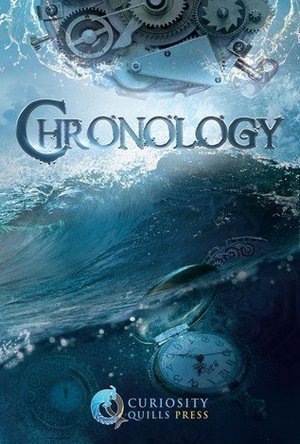
Curiosity Quills: Chronology
Richard Roberts, Tony Healey, Piers Anthony, J.R. Rain, Jordan Elizabeth Mierek, James Wymore, Stan Swanson, Darin Kennedy , Julie Frost , Andrew Buckley , J.P. Moynahan, B. C. Johnson, J. P. Sloan, Andrew J. Rausch, Katie Young , Scott Nicholson, Wilbert Stanton, Tara Tyler, Mark W. Woodring, J. E. Anckorn, Nathan L. Yocum, G. Miki Hayden, Matthew S. Cox and Matthew Graybosch
Book
It's time... for time! Embark on a literary journey through the ages with Curiosity Quills Press in...
Hadley (567 KP) rated The Hollow Ones: the Blackwood Tapes Vol. 1 in Books
Sep 9, 2020
I've grown up watching a lot of Guillermo Del Toro's movies. One of my favorites that he was the screenwriter for is Hellboy. Yet, I spent almost four months at the beginning of this year playing the video game Death Stranding, which features Del Toro as a main character. I bring the former and latter up because they rank very high on some of my favorite things list, and I believe that The Hollow Ones is one of the best books I have read in a long time. This is one of those few rare books which I wish I could live in as a lover of the paranormal/occult.
Odessa Hardwicke - - - an FBI greenhorn - - - is ordering dinner with her partner, Walt Leppo, when they get a phone call that someone is on a shooting rampage from an airplane. (Hardwicke looks up to Leppo as a father figure, and he sees her as a daughter) We learn that the two have been on a corruption case involving a politician's former deputy chief of staff- - - they suddenly realize that the airplane may be tied to this man, and he may also be the one going on the killing spree. The pair speed off to the deputy chief's home in fear that he may be going to kill his recently divorced wife, who was waiting to receive not only their huge house, but a nice lump sum of money.
When Hardwicke and Leppo get to the house, after stopping the deputy chief, Hardwicke suddenly finds herself holding a gun on her partner while he tries to murder a little girl. She has only two choices to make: a) kill her partner, and face the backlash of shooting an agent in the line-of-duty or b) let him kill the girl and possibly herself- - - Hardwicke chooses to shoot and kill Leppo. Immediately after this, she sees something like a heatwave leave Leppo's body and disappear. When other agents arrive to the crime scene, Hardwicke keeps this information to herself, wanting to know instead why her partner suddenly turned into a murderer. Pending an investigation, Hardwicke is put on desk duty, including errands that the Bureau doesn't want to deal with. Enter Agent Earl Solomon.
On order by the FBI, Hardwicke is sent to clean out an office used by a retired agent that was hospitalized for a stroke. She takes his things to the hospital (not knowing what to do with them), and while discussing her plight with him and revealing that she had seen a sort of heat vapor leave Leppo's body, Solomon quickly tells her to write a letter to a man named John Silence, and place it in a nearly invisible mailbox in the Wallstreet area of New York.
From this point on, the book really begins to take off, and the fact that the authors brought in the religion of Palo (the Mayombe branch) is fascinating for anyone interested in the occult. The buildup of the story is really enjoyable, too, especially when Hardwicke decides to write and deliver the letter.
Readers also get to see Solomon's story from years before when he was one of the first African Americans to be recruited into the FBI. We see Solomon being sent to Mississippi in 1962, where a number of lynchings of African Americans have occurred, but the FBI hasn't been called in until the last murder: a lynching of a white man. Solomon can't help but question if he was only brought on this case because he is African American. Ignoring the bigotry, Solomon does his job, and comes across a young boy who is possessed by some sort of demon. The boy tells Solomon to bring him Silence, a man who Solomon has never heard of.
John Silence is also an interesting character; a nearly 500-year-old occult detective. We also get to see flashbacks of his life in the 1500's, learning about his occupation as a barrister, and his first encounter with the paranormal- - - something that has plagued him since- - - as well as his teacher in the occult. In the chapters of today, Silence is a mysterious figure, and carries himself much like a modern day Sherlock Holmes. Even by the end of the book, readers are still left with questions over what Silence has been through in the last 500 years. He, having only met Solomon 58 years prior- - - the two have a huge history together. Proven by the fact of how many 'cases' Solomon has hidden in his private records room that the two have embarked on together.
The Hollow Ones is a very enjoyable book, but I could only give it 3 out of 5 stars. The rating is because the authors- - - Del Toro and Hogan- - - used so many details, like the make and model of a passing vehicle, that it would interrupt the flow of the story, being bogged down by it. One other problem that I had was with the character Laurena; she was a 'filler character' (a character that is brought in just to make something happen in the story), but she was written to be Hardwicke's best friend. This was highly unbelievable with the two times she showed up in the story.
I really, really hope that Del Toro and Hogan decide to make this a series, and that the rest of the books show us Solomon's and Silence's journeys together! I highly recommend this book to people who love the paranormal/occult crime books.
Purple Phoenix Games (2266 KP) rated Abyss in Tabletop Games
Aug 5, 2021
Abyss is a push your luck, set collection, hand management, fantasy card drafting game for two to four players. In it players are attempting to gain the most Influence Points to rule the underwater kingdom by recruiting allies and Lords, and controlling locations. The game ends once a player recruits their seventh Lord or if the Lords cards run out before the Court can be refilled.
To setup, lay out the board, shuffle the Exploration cards (starfish backs) and place in the upper left corner. Shuffle the Lord cards (trident backs) and place the deck in the lower left corner. Reveal Lords to each of the spaces drawn to the right of the deck. This is the Court. Shuffle the Monster tokens and place in a messy pile near the board. Next to these place all the Key tokens. Display the Threat Tracker board with the Threat token on the first space. Shuffle the Location tiles into a stack and reveal the first one. Give each player a pearl in a shell cup and the game is ready to begin!
On a player’s turn they will follow the basic structure of Plotting at Court (by spending pearls to reveal more Lords), Taking One Action (by Exploring the Depths, Requesting Support from the Council, or Recruiting a Lord), and Controlling a Location.
Plotting at Court is simply paying pearls to reveal more Lords at Court.
The action choices begin with Exploring the Depths. This is the push your luck portion of the game where players will reveal cards from the top of the Exploration deck one by one, offer the card to their opponents for purchase (payable to the active player in pearls), and then deciding to continue or take into hand. These cards include members of five allied races of underwater species numbered in strength from one to five and monsters. Fighting monsters is an auto-win and the spoils are what is reflected on the Threat Tracker. If players decide to pass, they will move the Threat token down by one level and improve the treasure won when destroying a monster. Any allies that are undrafted will be sorted by family and placed on the appropriate space on the board.
To Request Support from the Council players will take the entire stack from one family on the board. Again, these are made up of the cards that were undrafted from previous Exploring the Depths actions.
Finally, Recruiting a Lord players will be spending their Exploration cards to combine strength values and family types to appease the Lords they wish to recruit. Players will analyze the strength needed on the bottom left of the Lord card along with the number and color of bubbles above the strength number to determine from which families cards will need to be paid. Lords will have special powers that can be used throughout the game until you use them to Control Locations.
Lords and monster tokens afford players keys, and once players accumulate three keys they MUST Control a Location. To Control a Location players will draft a face-up Location tile or draw one to four tiles and draft one of them. Also, players will sacrifice their Lords (and their special powers) to, well, lord over Locations as super powerful property managers. This is done by covering up the special Lord powers with the Location tiles.
Play continues in this fashion of quick turns until a player recruits their seventh Lord or if the Lords cards run out before the Court can be refilled during a Plot at Court action.
Components. As I mentioned in my open, Abyss boasts some of the most magnificent art ever to grace a board game. The aesthetic coupled with the theme makes for a gorgeous game on the table. The cardboard is all good quality and thick, the cards are good quality as well. The black plastic shells and pearls they hold are so nice to play with and I find myself rolling those pearls as fast as I can within the shells and inevitably spilling them everywhere.
The game play is also quite solid. I like drafting games quite a bit and this delivers a lot of drafting in different locations. You draft Exploration cards and Location tiles to beef up your mini empire. Using the Lords as special power cards but having to cover them up to help control a Location is a clever mechanic and helps with any sort of runaway leader issue. I did not touch on a couple rules because they can be a little confusing to new players (ie the affiliation of allies), but even new gamers can appreciate what Abyss does and how beautifully it accomplishes its task.
I cannot overstate how gorgeous this game is and how much I enjoy being able to pull it off the shelf and set it up to people who have never seen it. I mean, even just the box cover, which is a giant face and no text, is very impressive and helps set the tone for the dark but interesting experiences held within. Purple Phoenix Games gives Abyss a boding 14 / 18. Pick it up, post a picture of which box cover you received, and tag us in the post so we can compare.
Purple Phoenix Games (2266 KP) rated The Lost Expedition in Tabletop Games
Jul 22, 2021
Disclaimer: The Lost Expedition can be played cooperatively, solo, or head-to-head. This review only covers the cooperative version of the game! -L
The Lost Expedition is a cooperative (in this case) game of strategy and hand management in which players are trying to traverse the jungle to reach El Dorado by carefully managing their Resources and utilizing their collective Expertise. To setup the game, choose 3 explorers to form your team, and collect 3 Ammunition and 4 Food from the supply tokens. Shuffle the adventure cards, dealing 4 to every player, placing the remainder in a face-down draw deck. Depending on the difficulty selected, place the corresponding number of Expedition cards in a row on the table (we played Normal mode, using 9 Expedition cards). Place 4 Health tokens on each explorer card, place the phase token with the Morning side up, select a starting expedition leader, and the game is ready to begin.
Each round consists of 2 phases: Morning and Evening. During the Morning phase, players will take turns playing adventure cards from their hand, one at a time, until each player has played 2 cards. This line of cards forms the path that the explorers are traveling in the morning. After all cards have been played, they will be rearranged in numerical order, from lowest to highest. Once the cards are organized, they will be resolved one at a time, from lowest to highest, until all cards have been addressed. Examples of card actions are: discarding the next card in play, swapping two cards on the path, adding a new card to the end of the path, or moving the team pawn one card closer to El Dorado. Adventure cards have different colored boxes that indicate action choices that the players must make. Some actions are mandatory and must be completed. Some cards offer 2 or more choices, one of which must be selected and performed to clear the card. And some cards have optional choices, that do not have to be completed for the card to be resolved. Certain actions will require the team to gain/spend Resources tokens or Expertise from your explorers (in the form of Health tokens). At the end of the Morning phase, the team loses 1 Food token, and play continues to the Evening phase.
During the Evening phase, the gameplay is like that of the Morning with a couple of changes. Players again will alternate playing cards, but will play until all remaining cards in their hand have been played. Cards in the Evening phase are resolved in the order that they are played, and are not organized numerically like in the Morning phase. Again, after all cards are played, they will be resolved one by one as normal, paying Resources/Expertise as required. Once the Evening phase is finished, the team loses 1 Food token, players draw a new hand of cards, select another expedition leader, and a new round begins with the Morning phase. Play continues in this fashion until either the players have reached El Dorado, all 3 of the team’s explorers have died (have no remaining Health tokens), or if the adventure card draw deck runs out 2 times during play.
Pretty straight-forward, right? Play cards, resolve cards, repeat. That is one thing I really like about The Lost Expedition – it is simple, yet so strategic. Ultimately this is a game of Resource/Expertise management. You need at least 1 explorer to make it to El Dorado alive. There is no reward without risk in this game. Couple that with the multiple action options on each card, and you’ve really got to have a strategy. Maybe you’re low on Ammunition, but in order to gain back some much-needed Health, you’ve got to spend Ammo. Or are you willing to deal damage to an explorer if it means the team can advance a card? There are so many things to consider, and so many ways in which you can strategize, and that keeps all players engaged.
That being said, players are not allowed to reveal the details of any cards in hand. So how can you best communicate with your team about what types of cards to play if you can’t tell them point-blank? That added aspect of working in a team creates some unique strategies in and of itself. Ultimately, the final decision comes down to the expedition leader for the round – but what if they choose the action you didn’t want? How can everyone help balance everyone else out? You really have to work together to be successful. The flip-side of that teamwork is that the game can be frustrating in some aspects. You never truly know what your teammates are going to play at any given time, and the card they choose could totally unravel your plan. Not being able to discuss the specifics of cards in your hand makes sense (because then why wouldn’t the team just have one collective hand of cards?), but it adds an element of randomness and luck to the game that seems counterintuitive to me. Playing the wrong card at the wrong time might just turn your team against you, and that undermines the spirit of the game.
Let’s touch briefly on components. The cards are nice, oversized, and sturdy. The artwork is colorful and thematically appropriate. All of the Resources tokens are thick cardboard, and the meeples are nice and chunky. All in all, good production quality overall.
So how do I really feel about The Lost Expedition? I think it’s ok. It is strategic and entertaining, with the added elements of teamwork and cooperation – you either win together or lose together. As a group, you’ve got to have an adaptable strategy and manage your resources as best you can. Is it a game that I love? No. But it’s one that will probably stay in my collection for a bit, before it moves on to someone who might see some hidden quality that I may have missed. If you want a nice and relatively simple team game to play, maybe check out The Lost Expedition. And if risk/reward or resource management isn’t your jam, then maybe keep looking beyond this one. Purple Phoenix Games give The Lost Expedition an eventful 6 / 12.
Phillip McSween (751 KP) rated Green Book (2018) in Movies
Dec 23, 2018
Acting: 10
You can tell someone is killing at their job as an actor in a movie when you don’t even recognize them. Viggo Mortensen is out of this world amazing in his performance as Tony. He’s tough as nails, but you can see his softer side coming forth as the movie progresses. He and Mahershala Ali have a phenomenal chemistry that carries the story and entertains you from start to finish. They make you feel as if they’re actually becoming the best of friends as their worlds collide. I loved the intensity of some of their scenes and how they could turn on a dime and bring you a little laughter. Also, not-so-small shout out to Linda Cardellini who plays Lip’s wife Dolores as her performance was extremely solid as well.
Beginning: 10
Characters: 10
Tony Lip is easily one of my favorite characters in any 2018 movie this year. He is the typical gruff male and the stereotypical American-Italian type, but it’s eye-opening and fun to watch a character like that in a setting that’s not a mafia movie. His progression is what makes him great, or adds to his greatness rather. I couldn’t imagine coming across a guy like Tony Lip and not liking him after five minutes of meeting him.
I don’t want to downplay Don Shirley’s character, although Lip does steal the show. Shirley is one we can learn from, a guy that fights through adversity and is determined to win at all costs. He is a lost soul that drowns himself in the highs and lows of alcohol and music. You pity him and you cheer for him at the same time.
Cinematography/Visuals: 9
I am always impressed with period pieces and how they are able to capture regions so well. There is such a great depiction here of the northeast vs. the deep south that transports you easily from one region to the next. One minute you’re on a bustling street in the middle of New York and the next you’re on country road surrounded by trees being taken to a backwoods gas station. Just thinking about it even now made me add another point on. I also loved the stark contrast between the beautiful venues where Shirley would play and the grimy hotels he had to stay in because of the color of his skin. It was a major eye-opener and a punch to the gut when you see it on screen.
Conflict: 10
Genre: 8
Memorability: 10
Great choice on the title as it alone helps the film to stand out. You will understand when you see it, trust me. Overall Green Book is a beautiful tale that ultimately breaks stereotypes and spin things in a different light we don’t quite expect. I loved how there were a number of scenes that were not only funny, but touching at the same time.
Pace: 10
Plot: 10
Resolution: 10
Slightly cheesy, slightly unrealistic. I don’t care. To me, it was a fitting ending to an overall solid story. It’s got my seal of approval.
Overall: 97
I love when unexpected gems hit me in the face like Green Book. Go see this film. You will not be disappointed.
Mandy and G.D. Burkhead (26 KP) rated Poison Study (Study, #1) in Books
May 20, 2018
The first trilogy, comprised of Poison Study, Fire Study, and Magic Study, follows Yelena Zaltana. The second series, also called the Glass series, follows her friend Opal Cowan in Storm Glass, Sea Glass, and Spy Glass. The final trilogy, Shadow Study, Night Study, and Dawn Study, is where things get a bit odd. Maria V. Snyder had thrown in a few short stories/novellas throughout from different characters’ points of view. Perhaps she got bored of just sticking to one POV, or maybe fans wanted more from the other characters, so the third trilogy is from Yelena’s POV in first person and the POV’s of multiple characters (mainly Valek, Leif, and Janco, with a few others popping in from time to time) in third person.
I’m not sure which editor thought it would be a good idea to have POV switch from first person to third person in the same novel, but—yikes—is it jarring. Even with the wonky POV stuff in the third trilogy, these books are amazing and absolutely worth your time to read. Snyder’s world-building is compelling, detailed, and original. The books take place mostly between two pre-industrial countries: Ixia and Sitia. Ixia is a post-revolution country ruled by Commander Ambrose. His personal body guard and assassin is Valek. In the first novel Yelena is in prison for murder and is offered the choice to be the Commander’s food taster in exchange for her life. She agrees, and throughout the first book she and Valek begin to fall in love.
Ixia reminded me a lot of Communist Russia or China. In its attempts to throw away the corrupt government and society that came before, it has also thrown out all culture in the process. The country has been re-divided into districts with numbers instead of names, everyone is forced to wear a uniform, all art and extravagance has been destroyed, people have to have passes to travel between districts, and magic is forbidden. Anyone born with it is killed (or so the reader is led to believe). But Maria V. Snyder does a wonderful job of showing the good with the bad in this totalitarian dictatorship. Everyone has a job and nobody goes hungry, women are now equal to men, and violence and sexual assault are intolerable. This is why Yelena ends up in prison in the first place: she murdered the man that raped her. Now, this is probably my first major gripe with the series. We learn that Commander Ambrose loathes sexual assault and will execute anyone found guilty of it, but apparently killing a rapist in self-defense is also an executable offense. And all of that being said, Ambrose still has his own personal assassin. It all feels a bit contradictory, but again, that’s what I like about this series: it does an excellent job of peeling back the layers of her fictional societies and pointing out that governments and people in power tend to be hypocritical.
Now, the series name (or rather one of them) is Chronicles of Ixia, but honestly, it should have been called Chronicles of Sitia, because that is where most of the story takes place and is by far the more interesting and vibrant country. Sitia is part jungle, part desert, and full of magic. The peoples are divided into multiple clans or tribes that are all unique and compelling. In the second book, Yelena flees to Sitia after the Commander learns she has magic, and there she finds the family she was kidnapped from as a small child. They are part of the Zaltana clan, a group of people that live high in the trees in the jungle. Whenever I read about them, I would have to remind myself that they were not wood elves or dryads, because while there is magic in these books, there are no fantastical creatures: all characters are human or animal.
Another fascinating tribe is the Sandseeds, a group of nomads in the desert known for two major things: breeding super smart horses and having Storyweavers. The Storyweavers are people who have the magical ability to see the future and guide others, but who have to do it really cryptically because reasons (I appreciate that this gets pointed out by an annoyed Yelena multiple times). And of course, the Sandseed horses are fantastic; they choose their rider and able to mentally communicate with magical people. They even have their own horse names for people that they like.
Besides the different clans throughout Sitia, there is also the capitol, the Citadel, which is home to the magic school and the Sitian Council. While very different from Ixia, Sitia is by no means perfect. Its Council epitomizes everything annoying and dysfunctional about a bureaucracy. While the council members are elected and come from every clan in Sitia, they are at best useless and at worst actively impede the main characters.
The magic school is interesting, though the story doesn’t actually spend much time there. I like how magic was done in this series: it usually runs in families, most people with it have control over one or two things (ie. fire, mind-control, telepathy, etc.), but those who have the ability to master more can become Master Magicians after enduring a daunting trial. Magic is bound in people’s blood, so blood magic is a thing and is obviously bad, and magic (and a person’s soul) can be stolen using an intricate and gruesome blood ritual that involves prolonged torture, rape, and then murder.
The power blanket is another interesting concept used in this series. Essentially is resides over the entire world and is the essence of magic, so magicians can pull from it to augment their own magic. However, if they pull too much and lose control, they can flame out, killing themselves and temporarily damaging the blanket in the process. I thought this was a good literary tool to prevent magical characters from being too OP (at least most of the time).
I especially like the romantic relationships in this series. Valek and Yelena are of course the main couple. In the first book they fall in love, in the second book they get separated, and throughout the series they regularly cross paths and save one another. Yelena and Valek are heartmates, and as the series progresses they both have to mature and learn how to trust one another. My biggest complaint about the romance is that all sex scenes are just fade to black, which I personally find a bit boring.
The other major romantic relationship is between Opal and Devlen. This one was a bit awkward. Opal actually goes through a couple of guys first: a stormdancer named Kade and another glassmaker named Ulrick. And I really liked that the author included this. Many people have multiple partners before finding their soulmate, and a woman who does is not a slut. Her relationship with Devlen, however . . . Well, she’s a more forgiving person than me.
You see, it turns out that Devlen is the man who kidnapped Opal a few years earlier and tortured her because he was trying to steal her magic. But he didn’t actually enjoy torturing her and never raped her, which I guess makes it better? Well, he manages to switch bodies with Ulrick and, as Ulrick, tricks Opal into dating him, then, when he’s discovered, kidnaps and tortures her (again) to gain more power. But then she steals his magic, he spends some time in prison, and the combination of the two miraculously turn him into a good guy, claiming that magic is what made him evil in the first place.
I’m going to be honest, I didn’t completely buy his redemption arc even at the end of the third book in the Glass series, but by the ninth book they’re still together and he’s on the good guys’ side, so I guess it was real. And I have definitely watched/read much worse evil asshole to boyfriend stories. At least Devlen genuinely feels guilty for the horrible things he did in the past and attempts to make up for them, and in her defense, Opal has to do a lot of soul-searching before she can find it in her to forgive and trust him, and even more before she can develop romantic feelings for him (that aren’t based on deception, anyway). Also, Ulrick becomes a huge jerk because of his newfound magical abilities, tries to kill Opal, and later gets assassinated by Valek. I appreciate what Maria V. Snyder is trying to do here, which is to teach through her storytelling how good people can become evil, and evil people can redeem themselves and be good. Their romance was uncomfortable to read, but it was supposed to be uncomfortable, because that’s how all parties involved felt.
Now, let’s talk about Commander Ambrose. Towards the end of the first book, Yelena discovers that Ambrose is a female to male trans person. This is revealed to be why Ambrose hates magicians so much: he is afraid that one of them will read his mind and then reveal his secret (which is how Yelena discovers it). After I read the first book, I was really pleased that Snyder did such a good job of depicting a trans person, as that’s really only a small part of his character, and those who know (mainly Valek and Yelena) don’t make a big deal out of it.
And then . . . I really wish that the author would have just left the issue of the Commander being trans alone. Yelena discovers it in the first book, she keeps it to herself because it’s nobody else’s business, the end. But by creating this weird intricate background to explain why Ambrose is trans, Snyder just kind of shoots herself in the foot.
Throughout the rest of the series, I kept hoping for some other LGBTQ+ characters to show up to redeem the blunder with Ambrose. I actually believed that Ari and Janco were a gay couple for the longest time, what with their banter and often being referred to as partners. However, if this was the author’s intention, it was never really explicitly stated, and the partner thing just seems to refer to them being partners in combat and nothing else.
BankofMarquis (1832 KP) rated Killers of the Flower moon (2023) in Movies
Oct 27, 2023
And that is because KILLERS OF THE FLOWER MOON is as much atmosphere, mood and setting as it is story. Early on, one of the characters warns another one that the Osage people (the central group in this story) “don’t say much, listen more and let long pauses hang between words” and Scorsese does much of the same. Letting the story hang - and be told in - the silence between the words. And it works…if you are paying attention.
Starring Scorsese regulars Leonardo DiCaprio and Robert DeNiro and featuring a wonderful, soon-to-be-Oscar-Nominated performance by newcomer Lily Gladstone, KILLERS OF THE FLOWER MOON is based on the novel of the same name by David Gann and tells the tale of the Osage Nation who discover oil on their land in the 1920’s and the white men who come to try to connive and steal it away from them.
Taken on the surface, this story could be a pretty straight-forward white-man steals from the Indians story (substitute Buffalo for Oil and we have a story told so many times before - most notably in the Oscar winning movie DANCING WITH WOLVES), but in the hands of master craftsman Scorsese, this movie is much, much more than that.
Easily his best work in at least 10 years, Scorsese lets this story breathe and focuses in on the mood and atmosphere of the period - and the disparate people that inhabit…and battle for…this land and oil. It is the work of a maestro nearing the end of his tenure, skillfully conducting the Orchestra, one last, loving, magnificent time.
Like Scorsese, this is Oscar winner Robert DeNiro’s best performance in years and will not be surprised if he garners his first Oscar nomination in many, many years. Gone are the histrionics and over-the-top gestures and facial ticks that mar his comedic work (and in some cases his non-comedic work). DeNiro returns to the compact, internal “method” acting that was the hallmark of his early (best) work. You can see that this player still has “game” and he gives the role of William “King” Hale some dimension. This is good for this character could have, in lesser hands, turned into a “mustache-twirling” villain tying the heroine to the railroad tracks but in DeNiro’s capable hands (with Scorsese skillfully leading him) it is so much more.
Speaking of the Heroine, newcomer Lily Gladstone is just a strong and compact in her portrayal of Mollie Burkhart - the Osage woman in the center of the story. She gives Lily some sharp edges along with the rounded corners she is given in the script and the story and more than holds her own with the likes of DeNiro and DiCaprio in the many, many scenes she has with them. Most of the time, she needs to express quite a bit with a look or silence (while looking away) and she is able to convey that very, very well.
Fairing less well in this film is Leonardo DiCaprio as Ernest Burkhart, the sad-sack that is the pawn of “King” Hale and the love interest of Lily…or is he? DiCaprio is very good as Burkhart (when has he ever given a bad performance) but this character is thinly written and you can almost see the puppet strings on him. This, probably, is on purpose by Scorsese…but against two solid characters like DeNiro’s “King” Hale and Gladstone’s Molly, there just needed to be a bit more to DiCaprio’s character to make him more interesting.
Since this is a Scorsese film, it is fleshed out by some wonderful character actors led by the always watchable Jesse Plemons as the FBI agent sent to unpack what is going on. Joining him in what are (essentially) extended cameos are John Lithgow, newly minted Oscar winner Brendan Fraser, the always good Tantoo Cardinal, Scott Shepherd (as Leo’s brother) and a myriad of “that guy” and “interesting looking roughnecks” to flesh the feel of the film out - both on the white man as well as the Osage sides of the story.
The aforementioned Cinematography by Rodrigo Prieto along with the Costuming (Jacqueline West), Production Design (Jack Fisk) and Score (Robbie Peterson) all add to the mood of the piece and makes it very successful, indeed.
Just be forewarned, it is as every bit of 3 1/2 hours as it’s runtime dictates. There will be long, slow, silent parts that will make you tempted to pick up your phone - but resist that and enjoy the epic mood piece that is KILLERS OF THE FLOWER MOON. You won’t regret it.
Letter Grade: A-
8 stars (out of 10) and you can take that to the Bank(ofMarquis).
